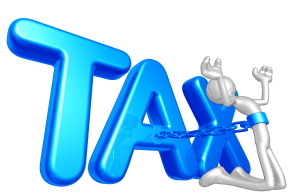If you’ve received an IRS notice saying that they intend to levy your bank accounts if you don’t pay up in 30 days, then it’s time to pay attention. Before the IRS actually issues a levy notice, they’ve usually made a few attempts at contacting you and trying to get a payment. If you’ve received an IRS levy notice, it means that the IRS hasn’t heard from you—they think you’ve been blowing them off (which in many cases is true). If you ignore the levy notice, they’ll just take your money and the law is on their side so you need to act now.
First, the responsible thing is to call them, or hire someone to deal with them for you. (I personally think that if you’ve reached this point, it’s best to hire someone—but remember, I do this for a living, so note that I’m biased.)
There are things you can do to prevent the IRS from going through with the levy. Let’s assume that you really do owe the money:
1. You can set up a payment arrangement–you pay off the IRS on a monthly bill schedule
2.Your situation might qualify you for an offer in compromise (the pennies on the dollar thing you see in TV commercials), or
3. Maybe you’re going through hard times and need to be put into the currently uncollectable status—you still owe, but the IRS quits hounding you until you get a job or your situation changes.
But maybe you don’t really owe the money. That’s the big kicker for me. Usually, if you’re getting IRS levy notices, you do owe them money—or at least part of it, but I have seen several cases where my clients don’t owe the IRS anything! A couple of times I have even gotten them refunds instead. If you didn’t do your taxes, and the IRS did them for you, don’t assume that the IRS did them right. When the IRS does your taxes for you, they automatically put you in the highest tax bracket they can justify and you get no deductions or tax credits that you might have qualified for. (Here’s a hint: if you’ve got kids, the IRS probably did your taxes wrong.) Even if you find that you don’t owe the IRS money—you still have to contact them, let them know the situation, and then you’re going to have to provide proof. Usually your proof is your corrected tax return.
Dealing with the IRS is the best way to get yourself out of levy trouble. But here are a few things that you also might want to consider doing while the threat of a levy is still hanging over your head:
1. Make sure your name is taken off of your kids’ and/or parents’ bank accounts. If you’re on someone else’s bank account, the IRS can and will levy that account too.
2. Don’t keep large amounts in your bank accounts. If you’ve got lots of cash, then maybe you can just pay your debt. But usually, this isn’t an option for most people. If your paycheck is going direct deposit into your bank account, get the money out immediately. You can put your cash onto a prepaid Visa debit card. Once the levy is in place, the IRS can only take the funds that are in your account at the time of the levy, if you get another deposit, that money is accessible. Transfer money in only as you need to make payments out of the account.
IRS levies are serious business. Don’t make the mistake of ignoring them.
_______________________________________________________________________
Note: We try to answer all the questions that come to us but please be patient. It’s our busy season right now. We may not get to your post until the weekend. When you make a post and use the capcha code, it won’t immediately show up. You see, for every normal person like you that posts, there’s about three advertisements for things your mother wouldn’t approve of. (We try to keep this a G rated website.) We have to edit those out. If you need an answer right away, here are some links that might help:
EIC questions of any kind: http://www.irs.gov/Individuals/Earned-Income-Tax-Credit-(EITC)-%E2%80%93–Use-the-EITC-Assistant-to-Find-Out-if-You-Should-Claim-it.
How to find free tax preparers: http://www.irs.gov/Individuals/Free-Tax-Return-Preparation-for-You-by-Volunteers
How to find your local IRS office: http://www.irs.gov/uac/Contact-Your-Local-IRS-Office-1
If you want to hire us, please call (314) 275-9160 or email us. We do prepare returns for people all over the country (and a few foreign countries as well.) We are sorry but we cannot prepare an EIC return for someone outside of the St. Louis area because of the due diligence requirements.


